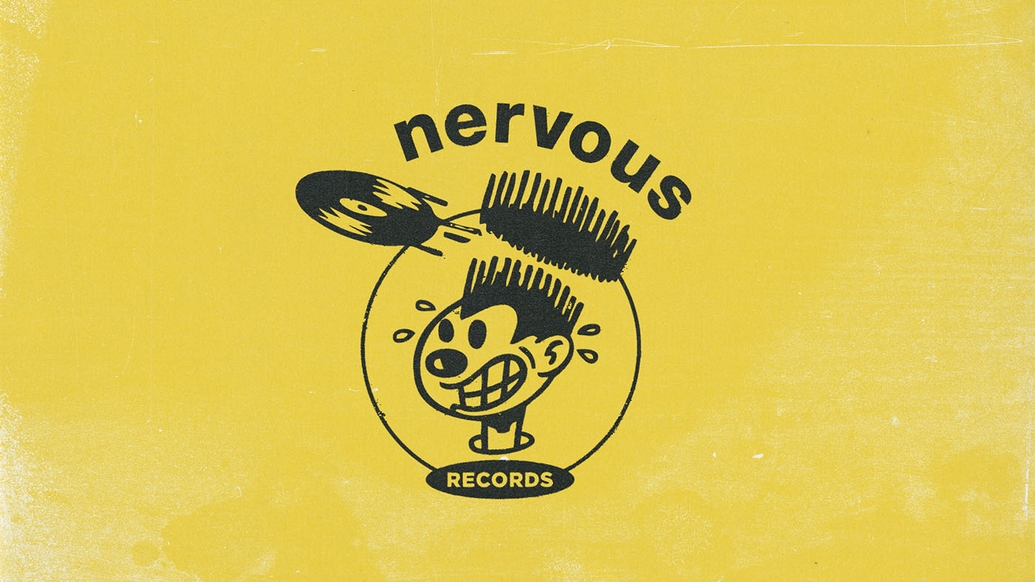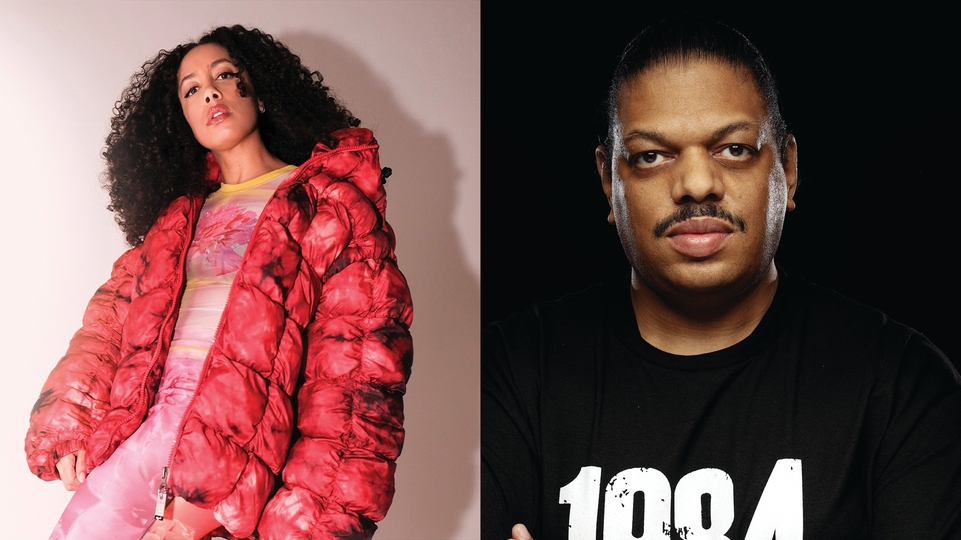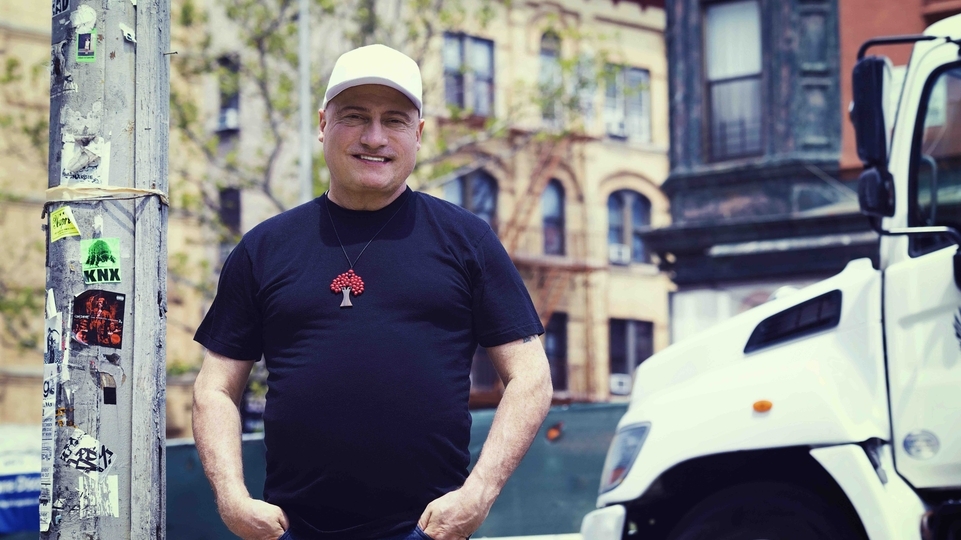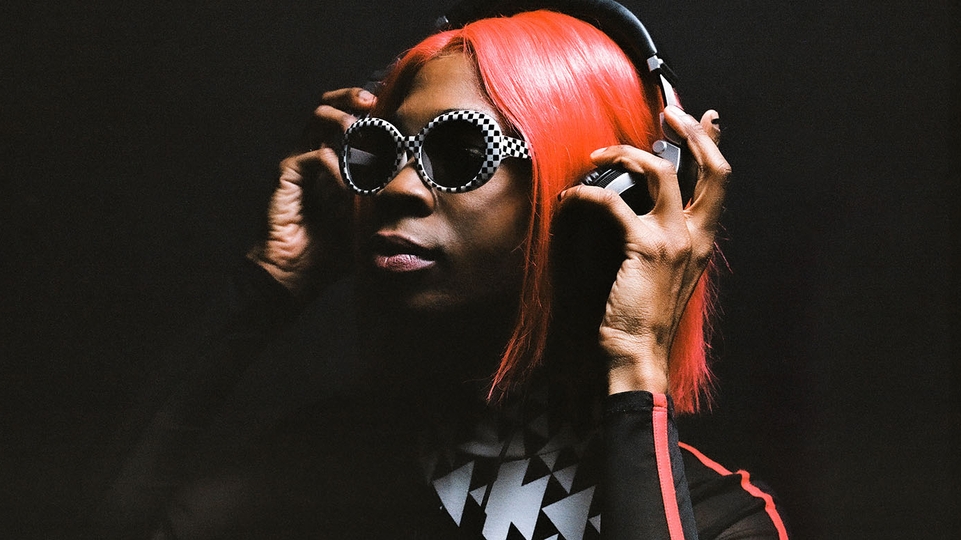
Nervous Records: 30 years of New York’s pioneering house label
Founded in 1991, Nervous Records was at the epicentre of New York’s house explosion. Three decades, and over 5,000 releases later, it’s still pumping out these four-to-the-floor sounds. As it marks its 30th anniversary with a new compilation, label honcho Michael Weiss shares the label’s story
You can accomplish a lot in three decades, and Nervous Records, the pioneering New York label that’s marking 30 years in the dance music business, has an exceedingly long list of achievements to its name. There’s a rundown of Nervous successes on its website and various social media accounts: the untouchable run of early house music singles, the hugely brief yet hugely successful foray into hip-hop, the hits, the sub-labels, the corporate tie-ins, the parties and the sheer longevity, among other things.
But scroll through the label’s Facebook page, and you’ll find one accomplishment that, through its sheer implausibility, stands out. There’s a post that claims that Nervous has pumped out over 5,000 releases — even for a label that sprang to life in 1991 and has been going strong ever since without interruption, that’s a mind-boggling amount of music. According to Michael Weiss, who founded the label with his father Sam and has been running it all these years, that number is no exaggeration.
“I know, it sounds crazy,” he admits. He’s sitting in his office, a cluttered desk behind him and a cap adorned with the Nervous logo on his head. “Even in the vinyl days, it was maybe one a week. But Strictly was doing two or three releases a week, and you had to keep up as much as you could.”
Weiss is referring to Strictly Rhythm, another of the great NYC house labels that sprang up in the early ’90s. Nervous and Strictly, along with a handful of other labels — Emotive, Maxi, Nu Groove, Eightball and the rest — came to define the kind of house, raw yet brimming with soul, that was coming out of the city at the time. Most of them closed up shop years ago; others had their catalogues bought out by larger labels. Nervous is the last one standing as an independent entity — seemingly as successful as ever, with its releases regularly sitting atop the various download charts.
The latest No.1 hit is the label’s new compilation, the celebratory ‘Nervous Records - 30 Years’. The collection features a galaxy of foundational Nervous cuts, including ‘Unspeakable Joy’ from Kim English, ‘Stop This Hate’ from Todd Edwards (released under his alias, The Messenger), ‘The Anthem’ from Deep Creed (aka Armand Van Helden) and Willie Ninja’s ‘Hot’, produced in 1994 by Louie Vega. Vega himself, along with Blaze’s Josh Milan, provides two new versions of ‘Hot’ for the comp; other remixers include Nervous veterans such as David Morales, DJ Pierre and Felix Da Housecat, along with relative newcomers to the Nervous cause like Radio Slave, Gerd Janson and Tensnake. With 30 tracks in all, it’s a massive release, as you’d expect from a label with a sprawling discography.

"To still be healthy and working in this industry is such a special thing. I mean, it’s a fun industry, right? New music, fun, charismatic crazy nightlife people — that’s fun stuff as long as you don’t abuse it. Never abuse the nightlife” – Michael Weiss, Nervous Records
To understand Nervous, it helps to look at Weiss’ background, to discover how strongly the music business runs through his blood. Weiss grew up in Riverdale, a middle-class neighborhood in the Bronx; his family moved to Great Neck, Long Island when he was 10. His uncle, Hy Weiss, ran the promotions department at the seminal soul label Staxx Records in the ’60s — but it was his father, Sam, who was the more direct influence. Sam got his start in the jukebox business; later, he launched the successful doo-wop label Old Town; later still, he ran Win Records, one of the era’s bigger distributors. Finally, he launched Sam Records, which by 1976 had become one of disco’s leading labels.
“When I was young, my father had a warehouse on Ninth Avenue in Manhattan,” Weiss says. “I’d go there and I’d be there surrounded by records, records, records. But I was given a mandate early on in life: Do not go into this business. I was told, ‘You got to study hard, and become a doctor or a lawyer’.”
But if the plan was to keep his son out of the music business, Sam wasn’t exactly setting the best example. Weiss remembers his father returning from late-night sessions at Sigma Sound — the studio credited as the birthplace of disco’s Philly Sound. “He’d come back at 6am after a session with [disco bandleader) John Davis or someone, and everyone’s sleeping, but he would be so excited. He would be up playing music all morning, just listening to what they had done that night.”
After high school, Weiss dutifully shipped out to Stanford, and later Syracuse university, to work towards a law degree. “But as soon as I got out of law school, I saw the lay of the land, and thought, ‘Nope, I don’t want to become a lawyer’,” he says. He convinced his father to let him join the family business, and went to work at the label.
The influential radio DJ Frankie Crocker was reigning over New York airwaves from WBLS at the time. “One day, I was trying to promote Sam Records to Frankie,” Weiss says, “and he said to me, ‘Mike, what are you doing? You’re not Sam. This label is him. You got to make your own identity’. Frankie was an amazing music man, a guy who understood the street and had such good instincts. So when he said that to me, it really struck home. That was really the moment I said, ‘You know what, I gotta figure something out’.”
That was the seed, and with his father’s help, Weiss launched Nervous Records in 1991. But even before the release of the label’s debut single — ‘Feel It’ by Niceguy Soulman, aka a young Roger Sanchez — the label’s identity had begun to take shape. Weiss hired an illustrator to come up with a logo, with the result being the iconic image of an antsy wreck of a character, in the process of having his crewcut lopped off by a flying platter.
“I didn’t think it could be serious because it was so weird,” Weiss admits, but he eventually started faxing it out to people who had been working with Sam Records. “And that fax ended up with some festival t-shirt manufacturer, and he took it and started bootlegging it. Finally some guy called me and said, ‘Are you making t-shirts?’ I said, ‘No. Why?’ ‘Because I saw a lot of people wearing t-shirts with your logo!’ Those shirts were so popular in England right away, even before anyone knew what Nervous Records was.”


Soon enough, the clubbing world would know Nervous well. Throughout the ’90s, the label released a string of tunes that are now regarded as classics: Sandy B’s ‘Feel Like Singing’, for example, and Josh Wink’s ‘Don’t Laugh’, Loni Clark’s ‘Rushing’, and ‘The Nervous Track’ by Nuyorican Soul, aka Kenny ‘Dope’ Gonzalez and Louie Vega. The list of contributors also includes David Morales, Danny Tenaglia, Kerri Chandler, Mood II Swing, Ten City’s Byron Stingily and a herd of their fellow house heroes.
Beyond his recorded work for the label, Louie Vega played a role in Nervous’s ascension, via his residency at Manhattan’s Sound Factory Bar. “Even before I had productions on Nervous, I was playing those tracks at my Underground Network night,” he explains. “Mike would bring the test pressings over, and I’d play them. All the English A&R guys would be hanging out at the club, and they’d see the reaction and would go ahead and license the records. And a couple of weeks later it would be a hit!”
In the label’s early years, Weiss launched a number of sub-labels, such as Sorted (for techier releases) and Weeded (for Jamaican-tinged sounds). But the most successful by far was Nervous’s hip-hop offshoot, Wreck. The imprint prospered during its brief run, with killer New York material coming from Smif-N-Wessun, Funkmaster Flex and Black Moon, who released their hallowed 1993 debut LP, ‘Enta Da Stage’, on Wreck.
“I was even in talks with MTV about doing a cartoon, right after Beavis & Butthead had blown up,” Weiss says. “They were looking for something more urban.” The idea was for an animated series starring the label’s logo character. “They were going to call him Neil Nervous,” Weiss explains, “and it was going to be a hip-hop cartoon — but they were just offering a one-time buyout, no residuals. It was a decent sum, but as a lawyer, I couldn’t live with myself if it had become big.”
“I gotta say, in retrospect I just didn’t give enough attention to hip-hop,” he continues, a hint of regret in his voice. “It was blowing up so quick. It was a force, and it needed a lot of attention. But I had to ask myself, am I really a full-on hip-hop guy? Or am I gonna do the house thing? And my instincts told me house — even though there’s way more money in hip-hop.”

House is still at Nervous’s core, but Weiss is smart enough to adapt to the times. For a while, he even had a flirtation with EDM. “That started before the phrase EDM really existed,” Weiss says, ‘back when these kind of synthy records from guys in Sweden and Amsterdam were just starting to happen. And the legendary, quality house guys I had been working with — well, this music did not make sense to them,” Weiss says with a laugh. “But things always evolve, and things move on.”
He’s pleased that the pendulum has swung back. “I have to say, it’s great that there’s been a resurgence of interest and appreciation of the ’90s house sound,” he says. Take a random Nervous track of recent vintage, say Birdee & the Dukes’ ‘The Stars Are Out Tonight’ — the DNA of vintage ’90s Nervous is still there. Nowadays, Weiss’ musical focus is on the label and its two current imprints: there’s Nervous for the newer artists and slightly more outré sounds, and Made In Miami, run by Oscar G of Murk fame, who’s a longtime Weiss compatriot.
In recent years, notables like Lauren Flax, Walker & Royce and Louie Vega’s wife Anané, among many dozens of others, have made contributions to the Nervous family. Merchandising, as always, is a big part of the financial picture — that anxious Nervous dude is still a hot item — as are Nervous parties, largely produced in conjunction with New York über-promoter Benny Soto.
Along the way, there have been offers to sell the label. There was the time, for instance, when Rick Rubin tried to fold Nervous into the Def American family. “He took me to a nice lunch, and he wanted me to explain where the energy source of the records I was doing was coming from,” Weiss says. “Finally, he said, ‘Look, it’s not like I can offer you a lot of money but I can offer you a home that would really be something, that would be so good for you’.”
It didn’t work out — nor did an offer from Madonna’s Maverick label. “They were like, ‘What would it take? What if we got Madonna on the phone to tell you how much of a fan she is of the music you’re doing?’ Already, I didn’t want to deal with them. It’s nice to be pursued, but I don’t regret it.”
Weiss isn’t the boastful type — he’s quick to give credit to Andrew Salsano, who handles licensing, publishing and A&R, and digital and production manager Anthony Savino for the label’s current success — but he’s justifiably proud of what he and Nervous have accomplished over 30 years.
“The greatest achievement is that the brand is still alive,” Weiss says, allowing just a hint of pride to slip into his voice. “That means a lot to me, and it means a lot to a lot of other people, too. It’s not easy to create this kind of entity, but to still be healthy and working in this industry is such a special thing. I mean, it’s a fun industry, right? New music, fun, charismatic crazy nightlife people — that’s fun stuff as long as you don’t abuse it. Never abuse the nightlife.” That’s one lesson we could all stand to learn from.





